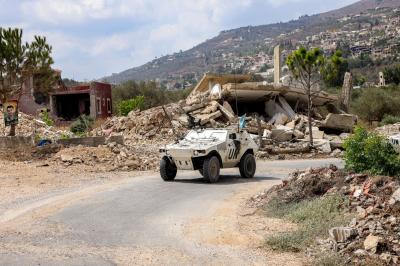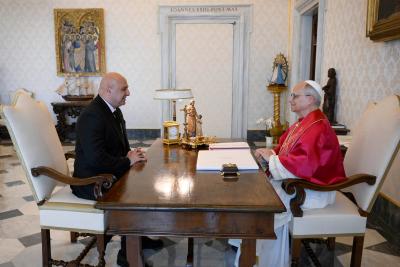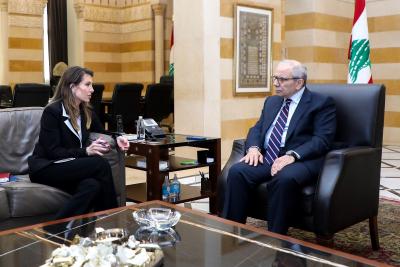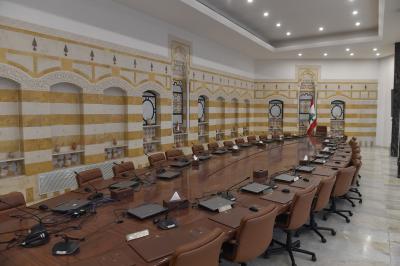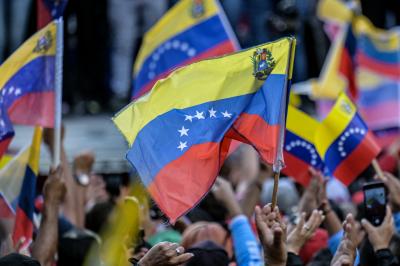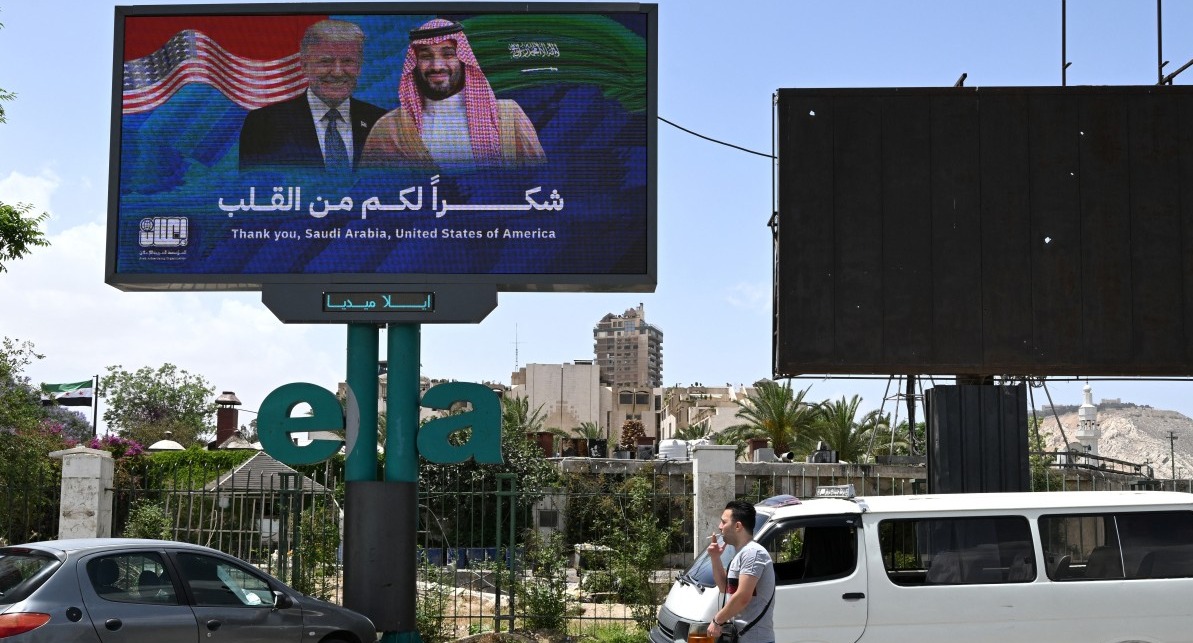With a mix of suspicion and caution, Lebanon has been observing the global reverberations of the high-profile scene staged in Saudi Arabia. The three-dimensional meeting brought together U.S. President Donald Trump, Saudi Crown Prince Mohammed bin Salman, Syrian President Ahmad al-Sharaa, and Turkish President Recep Tayyip Erdoğan via phone call.
During this historic visit, Trump handed out his accolades generously. He described what he witnessed in Saudi Arabia as a "modern miracle in the Arab way." He hailed al-Sharaa as a revolutionary and courageous leader and was visibly impressed by Saudi Arabia under Crown Prince Mohammed bin Salman's leadership. Lebanon, though not invited to the meeting, was still on the agenda, without having a voice at the table.
Trump's visit to the kingdom lends itself to multiple interpretations. By hosting al-Sharaa and announcing the lifting of sanctions on Syria, Trump effectively positioned Saudi Arabia as the patron, reference, and political guardian of both Syria and Lebanon in the region. This move places Syria at the heart of economic and political attention in the coming phase, with inevitable repercussions—both positive and negative—for Lebanon.
Trump drew clear red lines for al-Sharaa, instructing him to combat all forms of terrorism, including Iran's influence, and to work towards excluding Tehran from the region. In return, the Syrian president offered the reassurances Trump wanted, appealing for American assistance in this endeavor.
On the Lebanese front, Trump criticized Hezbollah while praising the revival of Lebanon's constitutional institutions, especially the presidency. It was as if he was urging these institutions to fully play their role in curbing Hezbollah's military and political influence. Trump noted that Washington understands Lebanon's delicate position regarding peace with Israel and is willing to give it time, but until then, Lebanon must ensure calm along its southern border. He emphasized that Lebanon now has a historic opportunity to prove its ability to enact change, effectively putting the country through a difficult test.
Trump imposed tough conditions on both Lebanon and Syria. He promised a new era of investment and economic and political recovery, but he also spoke of the Abraham Accords, suggesting that pushing Lebanon towards signing this agreement remains a primary goal.
While Syria benefits from the lifting of sanctions and is set to become a magnet for investors, many of them American, Lebanon's gains are more modest. Chief among them is the anticipated return of Syrian refugees, as the argument for voluntary repatriation fades with improving conditions in Syria. However, beyond the refugee file, Lebanon risks losing international attention to Syria, whose financial, economic, and banking sectors are poised for revival at Lebanon's expense. Beirut had hoped to play a key role in Syria's reconstruction, but that prospect now seems dim.
Politically, what raises the most concern is the prospect of Lebanon being handed over to Syria once again. The United States, known for its impatience, is unlikely to give Lebanon unlimited chances. Through Trump’s visit, Saudi Arabia has been entrusted with Syria and Lebanon alike. The longstanding Saudi belief that "whoever wins Syria inevitably wins Lebanon" is more present than ever, with Syria now seen as the priority, and Lebanon following suit. Consequently, it's not far-fetched to envision Lebanon once more being "assigned" to Syria—to contain Hezbollah on Lebanon’s northern and Bekaa borders, and to control arms smuggling through cross-border routes.
The Saudi context, while reassuring for Syria and its re-entry onto the international scene, is unsettling for Lebanon, entangled in internal disputes and unable to present a viable reform plan to regain global trust. Trump has brought Syria back onto the map and warned Lebanon of what is expected. Saudi Arabia, after a long break, is back to playing an active role in the region. All eyes are now on Hezbollah in Lebanon. Disarming the group is the state's most daunting challenge. President Aoun is expected to succeed in this test or face severe consequences.
Lebanon, now seemingly yielding to both American and Saudi pressures, has begun preparing for a dialogue with Hezbollah regarding its arms. While progress has been made in this regard, the toughest part remains: convincing Hezbollah to relinquish its weapons, especially after the brutal conflict faced by Alawites in Syria.
Trump's appearance in Saudi Arabia, coupled with his and the Crown Prince's hostile stances towards Hezbollah, has further heightened the group's anxieties. All attention is now on the slow-moving U.S.-Iran negotiations—a crucial card for Hezbollah. The outcome could either ease tensions or trigger the implementation of the U.S. conditions in full force.
Trump's visit has reshuffled the deck in the Middle East. As Walid Jumblatt aptly put it, we are witnessing a new Middle East and a new Syria. But where does that leave Lebanon? Excluded from the visit and the four-way meeting, Lebanon was sent a clear warning. Instead, Trump’s envoy, Morgan Ortagus, is expected to visit Beirut soon. The questions now are: What will she bring with her? And how will Lebanon respond to the conditions Trump laid out?
Please post your comments on:
[email protected]
 Politics
Politics
